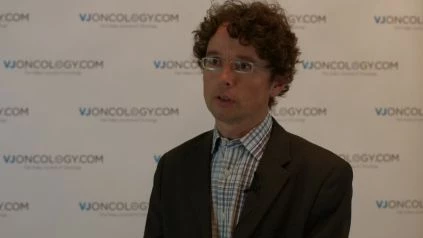Nikolas Haass, MD, PhD of the University of Queensland, Brisbane, Australia discusses the work of his lab on dynamic heterogeneity in the context of melanoma and his talk given at the World Congress on Cancers of the Skin (WCCS) and the Congress of the European Association of Dermato-Oncology (EADO) in Vienna, Austria. According to Prof. Haass, dynamic heterogeneity is important for designing drugs as different sub-populations of tumor cells within a tumor may respond differently to certain drugs. In his lab, the aim is to understand the biology of the different sub-populations of tumor cells. He further elaborates on the expertise of the lab, which is 3D cell culture and explains the real-time cell cycle imaging technique, which can be used to make 4D videos of tumors to help differentiate the sub-populations of tumor cells.
Why dynamic heterogeneity is important for designing drugs in melanoma

